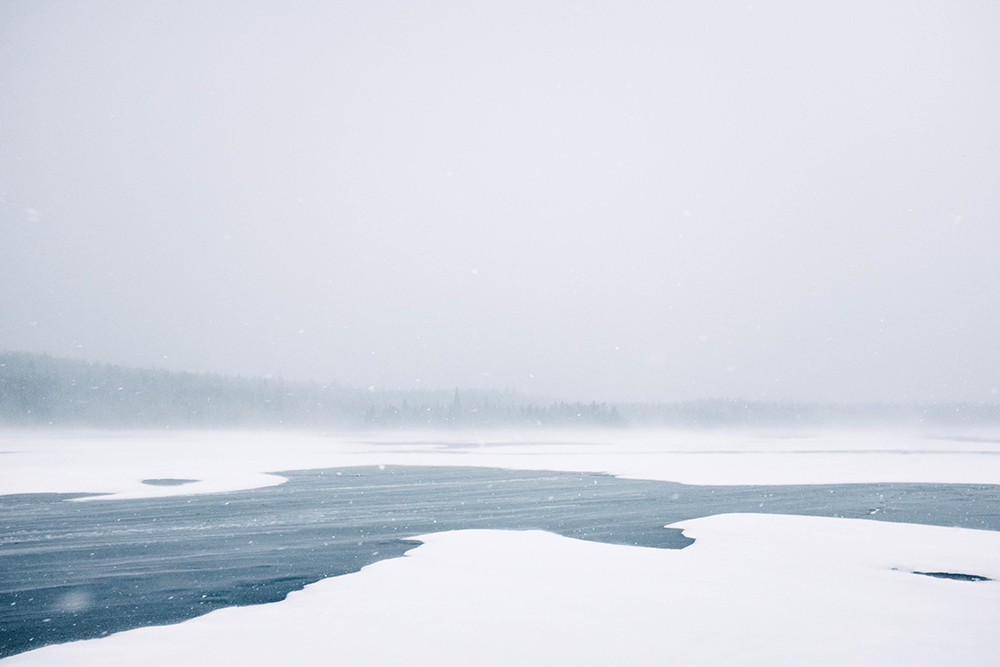It is not hard to find opinions on “climate change”. Not so long ago, what is now called “climate change” was addressed as “global warming”, a designation fell out of favour when too many cold weather records were broken. Radio, television, the printed media and the internet provide almost nonstop information on the subject. Here, in Canada, almost all of the information consists of warnings about the harm climate change is supposedly expected to cause.
In truth, our climate is always changing, and with change, there will likely be positives as well as negatives to arise with warming. Past warmings and coolings of the earth have historically resulted in both winners and losers. One benefit of warming would be improved navigation possibilities available in the far north as sea ice recedes in the Northwest Passage.
Canadian song-writer Stan Rogers penned his immortal song “Northwest Passage” retelling the story of Sir John Franklin and his tragic pursuit of that “holy grail.” Lives were lost, and great sums were wasted then trying to find a way through ice-choked western northern channels.
Eventually, the almost impossible task of sailing through North America was accomplished by Roald Amundsen. He and his crew braved truly formidable conditions in 1906 to emerge – thoroughly exhausted – successful. Since then, although the passage has been traversed many times it is still not as commercially practical as are Russian northern routes.
But that may be about to change. Recently, U.S. Secretary of State, Mike Pompeo asserted at an international meeting concerning global climate change: “Steady reductions in sea ice are opening naval passage ways and new opportunities for trade, potentially slashing the time it takes ships to travel between Asia and the West by 20 days”.
If this does happen, there would provide a tremendous opportunity for Canada. Obviously, as with every economic opportunity, there are political and environmental concerns that need to be addressed – (probably to result in agreements allowing for international passage through the Northern Passage with Canadian environmental oversight).
A Northwest Passage open to ships year round could be as significant as other time-saving passages have proved – the Suez and Panama canals, for example. Those shortened routes ushered in tremendous efficiencies for the world economy. Pompeo said just that: “Arctic sea lanes could become the 21st centuries Suez and Panama canals”.
The ecosystem of the far north is extremely fragile, a fact recognized by all of the polar region countries. International agreements, such as the October, 2018 international agreement towards protecting the Central Arctic Ocean, are essential if very real environmental concerns that are arctic specific are to be addressed. Because Canada’s claim to outright ownership of the Northwest Passage will probably not stand, it will be international bodies, and not Canada alone, that will decide environmental questions relating to the far north. Canada does not possess the ships and other equipment and infrastructure necessary to properly address either the environmental or sovereignty concerns without international help.
However, even countries with no direct polar connections understand the importance of potential far northern transit. China, in particular, has shown great interest. Its ambitious “Polar Silk Road” project is aimed at making transit over the top of the world possible, not only through North America but through Russian and European polar regions as well.
In fact, there is now not only one Russian northern route – the Northeast passage – but a polar route on top of that as well. And the Polar Silk Road is only one of parts of China’s highly controversial and hugely ambitious “Silk Road” masterplan to revolutionize – and some say, to control – world commerce.
Clearly, the stakes are high, the prospect of saving thousands of transit miles between the east and the west make the goal very inviting. So, although there are many impediments to northern travel, including shallow drafts, short seasons and a fragile ecology, the possible rewards are simply too great to pass up to not fully investigate all of the possibilities.
So, in the end, Franklin’s quest for the elusive Northwest Passage will not be in vain. International negotiations will no doubt intensify as the passage comes closer to being a practical option. Canada must ensure that our fragile northern lands and people are protected.
The advantages the passage could bring to Canada are enormous. It is impossible to calculate how much resources, energy and time have been saved by the Suez and Panama canals. Since those routes were opened, millions of ships have passed through them – representing a huge saving of time and money, and billions of gallons of unburned fuel.
The Northwest Passage has massive potential. Canadians should welcome the opportunity to develop the waterway in partnership with the international community. The Northwest Passage could be a world class waterway rivaling the Suez and Panama Canals.
Global warming will have its casualties – but its winners as well.



